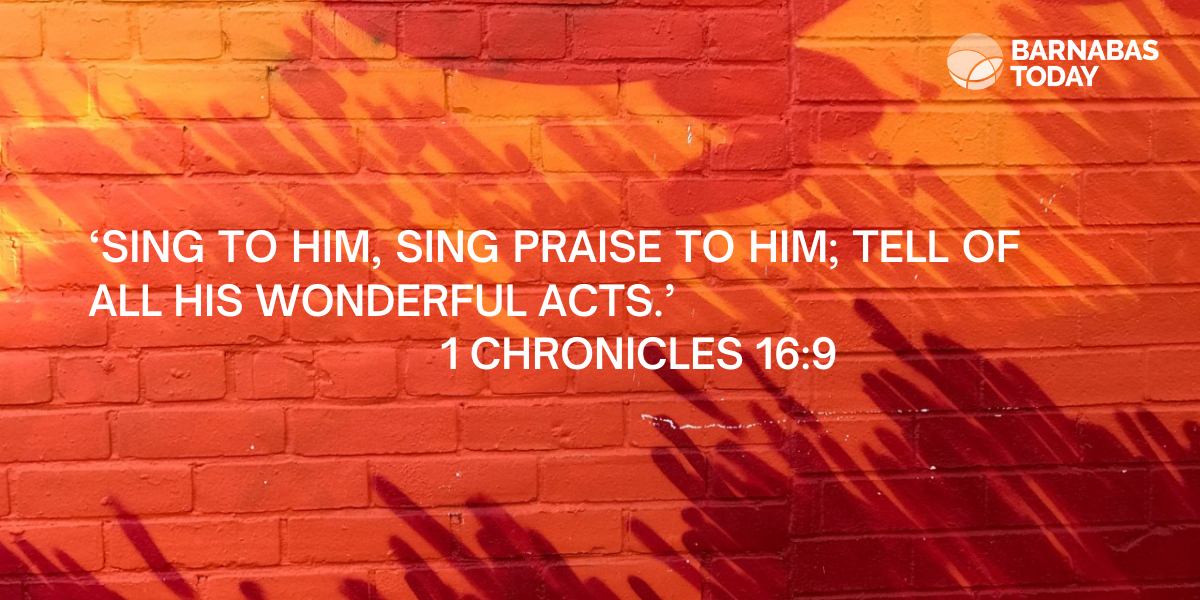
‘Sing to him, sing praise to him; tell of all his wonderful acts.’ (v9) 1 Chronicles 16:8–14
The challenge in all worship, from singing to living, is to stay focused on God, not on ourselves. We might describe our hunger for God or the challenges we face, yet only as part of our ongoing journey with God. Without God, I can do nothing (John 15:5).
At the first Cistercian monastery in Britain, monastics were laity who chose community life and adopted a rhythm of simplicity, prayer and work. Simplicity meant keeping daily life as clear of distraction as possible. Inspired by the Psalms, they established a structure to pause and pray seven times a day (Psa. 119:164).

These were moments to pause and refocus. Many of these were just a 15-minute pause like we might break up our working day with a coffee. However, they would sing a hymn, chant a psalm, read a few verses of Scripture and offer up a prayer. A bell was rung, and those close to the chapel would gather there. Others would simply pause in the fields, their work largely farming, and pray where they stood.
It’s a simple and well-tried structure. It doesn’t need community, nor a pattern of seven pauses. It does require some effort. My bell is my phone alarm set to remind me of my rhythm of daily prayer. Lockdown has been a joy, to pause and pray alongside my wife, as together we tell of God’s wonderful acts.

RELATED SCRIPTURE TO CONSIDER: Psa. 27; 130:5–8; Mark 6:30–46; John 15:1–17.
A PRAYER TO MAKE: ‘Lord, guide me in establishing a pause and worship rhythm for my everyday life. Amen.’
Photo by Annie Spratt and Marcos Paulo Prado on Unsplash









